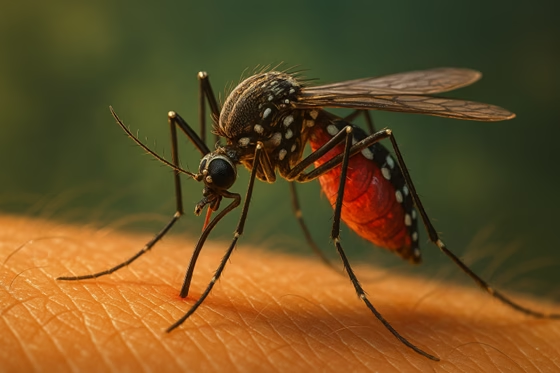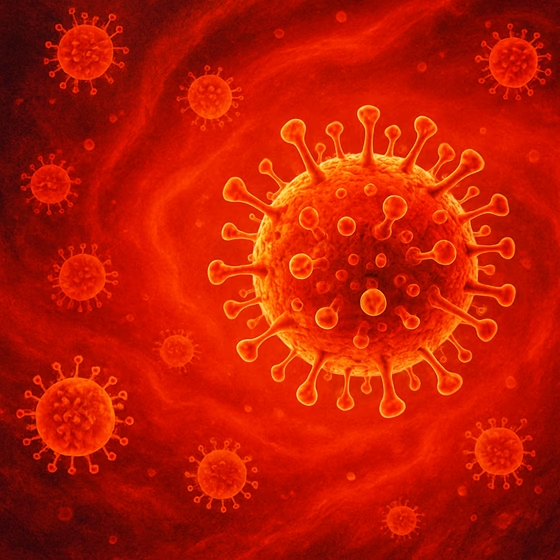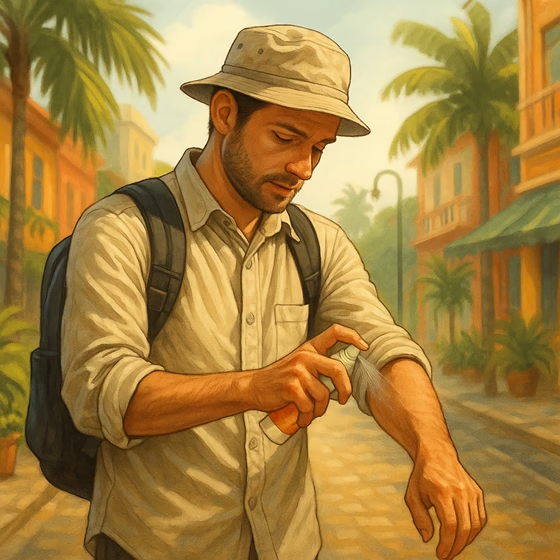Travel Alert: Chikungunya Outbreak in Guangdong—What You Need to Know
You’ve booked a long‑awaited trip to southern China, only to see headlines about a mosquito‑borne virus spreading through the region. Should you cancel your plans? In early August 2025, the U.S. Centers for Disease Control and Prevention (CDC) issued a Level 2 travel notice for Guangdong province after more than 7,000 cases of chikungunya were reported—most concentrated in Foshan[1]. This blog explains what chikungunya is, who’s at risk and how to protect yourself without giving up your adventure.
Why the Alert?
Chikungunya is transmitted by Aedes mosquitoes, which thrive in warm, humid regions. When local transmission spikes, travelers who are bitten can bring the virus home and spark outbreaks elsewhere. The CDC’s Level 2 alert means you should practice enhanced precautions: use insect repellent, wear long sleeves and pants, and stay in air‑conditioned or screened rooms[1]. Pregnant people are advised to reconsider travel because the virus can cause severe complications in newborns[2].

What Is Chikungunya?
Chikungunya is a viral disease first identified in Tanzania in the 1950s. Its name comes from a Makonde word meaning “to become contorted,” referring to the severe joint pain many sufferers experience. Typical symptoms include:
- High fever and chills.
- Intense joint pain, especially in the hands, feet and knees.
- Headache, rash and fatigue.
Most people recover within a week, but joint pain can persist for months[1]. There is no specific antiviral treatment, so care focuses on rest, hydration and over‑the‑counter pain relievers. Unlike malaria or yellow fever, there is no vaccine for chikungunya.

Who Is at Risk?
While anyone can contract the virus, certain groups face a higher risk of severe disease:
- Newborns exposed during birth.
- Adults over 65.
- People with chronic conditions such as heart disease, diabetes or hypertension[2].
- Pregnant individuals should avoid travel to outbreak areas when possible.
If you fall into one of these categories, consult your healthcare provider before traveling. They may advise postponing your trip or taking extra precautions.
How to Protect Yourself
Prevention is your best defense. Follow these strategies:
- Use insect repellent – Products containing DEET, picaridin or oil of lemon eucalyptus are effective. Reapply as directed.
- Wear protective clothing – Long‑sleeved shirts, long pants and socks reduce exposed skin. Light‑colored fabrics make it easier to spot mosquitoes.
- Stay in screened or air‑conditioned rooms – Mosquitoes are most active during the day, so sleep under a mosquito net if air conditioning isn’t available.
- Remove standing water – Mosquitoes breed in stagnant water. Empty containers, flowerpots and buckets around your lodging.
- Plan outdoor activities wisely – Avoid being outside during peak mosquito hours (dawn and dusk).

What to Do If You Get Sick
If you develop fever and joint pain during or after your trip:
- Seek medical care promptly – Tell your healthcare provider about your travel history so they can test for chikungunya and other mosquito‑borne diseases like dengue or Zika.
- Rest and hydrate – Drink plenty of fluids. Avoid aspirin or non‑steroidal anti‑inflammatory drugs until dengue fever is ruled out, as these can increase bleeding risk.
- Prevent mosquito bites – Infected individuals can pass the virus back to mosquitoes. Use bed nets and repellents to avoid infecting others.
Conclusion: Stay Informed, Stay Safe
The chikungunya outbreak in Guangdong is a reminder that global travel often intersects with emerging health challenges. By staying informed and taking sensible precautions, you can minimize your risk without cancelling your plans. For information on another environmental hazard that affects travelers, read our article on wildfire smoke and your health. For official updates and detailed guidance, visit the CDC’s chikungunya page.
Call to Action: Share your travel safety tips in the comments, and sign up for our newsletter to receive health alerts and destination insights.
[1] [2] U.S. warns travelers about chikungunya virus, spread by mosquito bites, in China – CBS News
https://www.cbsnews.com/news/us-warns-travelers-chikungunya-virus-mosquitoes-china/
